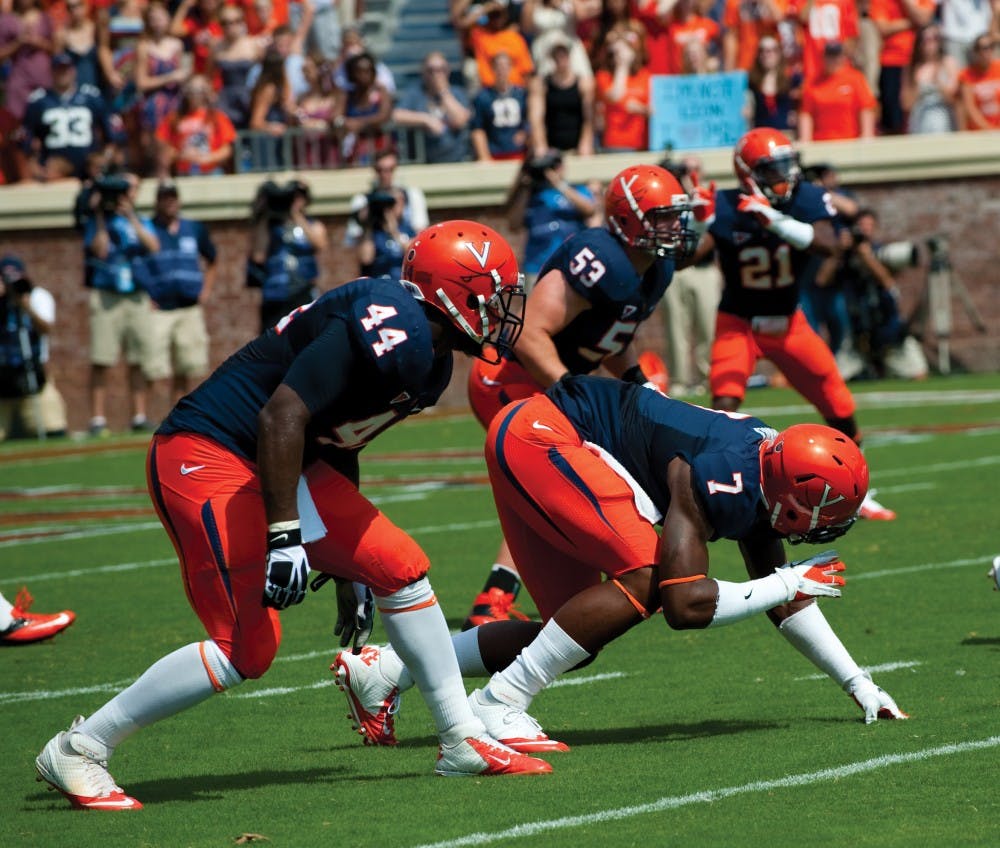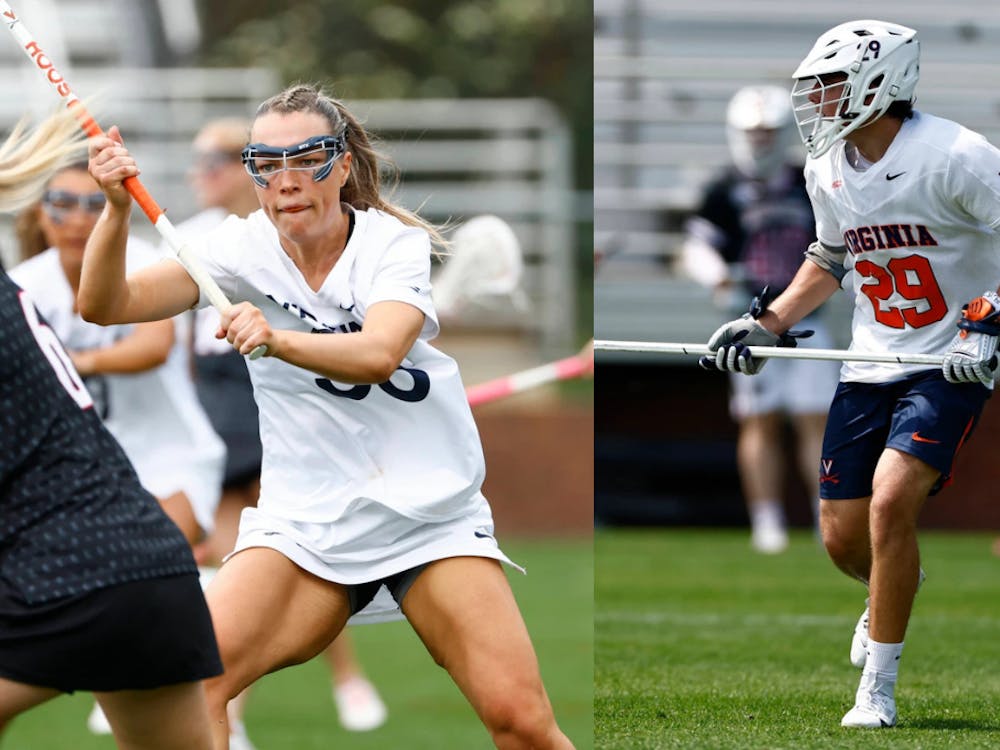Coach Mike London has mere moments to compose himself before he addresses his melancholy team in the locker room following losses. In these moments, London reflects on his core values to find the right words. Usually, he uses just three to guide him: faith, family and football.
The Virginia football team has lost five straight games and remains one of just two winless teams in the ACC. With each passing week, through mounting criticism and patience-trying mistakes, London has not wavered. He walks into the locker room, looks each player in the eye and tells them that things will get better.
“I close the door, we talk about what’s going on with them and it’s the one you’re looking at,” London said. “If I look at you, how devastated you are, and I don’t have that positive energy, you don’t see that reflected in me, then that’s a bad situation for the young man.”
For most of the Cavalier defense, which features five sophomore starters, adversity of this magnitude is foreign. But for freshman defensive end Eli Harold, losing five straight games does not constitute adversity. Adversity means losing a mother at age 17.
Harold’s mother, Sheila Korvette Harold, died of pancreatic cancer Jan. 2, 2011 at the age of 56. Her son used football as a coping mechanism to manage his grief.
Even before a final high school season that saw the 6-foot-4, 225 pound senior record 16 sacks and 78 tackles at Ocean Lakes High School to earn Beach District defensive player of the year honors, Harold had his pick of any college football team in the country. Virginia hardly entered Harold’s radar until he met with a coach whose charisma and positive attitude was infectious. Three words brought Harold to Virginia.
“You guys that know me, my priorities are faith, family and football,” London said.
Harold announced Aug. 2, 2011 his commitment to the University, choosing that date to honor what would have been his mother’s 57th birthday.
From the death of his mother to the death of his nephew, Forrest Raysean Harold, in Nov. 2010 at the age of 20 because of a heart condition, personal tragedy has forced Harold to grow up quickly in life. The self-described natural born leader carries that maturity onto the field with him.
“I don’t see [the expectations] as pressure because ever since I was a young guy, all my teachers and the people I’d be around would always tell my mother when she was here that I was a leader and people looked up to me and follow me,” Harold said.
Harold struggled to pick up the defensive schemes until the final few days of training camp. During one intrasquad scrimmage, the lean Harold lined up opposite 6-foot-6, 325 pound behemoth junior offensive tackle “Big Man” Morgan Moses. Harold knew he could not outmuscle Moses, so he decided to outmaneuver him.
“When I got in my stance, I was like, ‘I hope this works,’” Harold said. “He just shot his hands out and I dipped under him. He shook my hand and was laughing about it. That was a big moment for me.”
Harold uses his uncommonly low stance with his helmet inches off the ground to give him a prodigious first step in pass rush. That ability has expedited the freshman’s timetable for contributing in game situations. Before Saturday’s 27-20 loss to Maryland, defensive line coach Jeff Hanson told Harold to know the game plan — he told Harold to prepare for the biggest workload of his young career.
Harold’s older brother came to Charlottesville to see Eli play in college for the first time, texting Harold with pre-game words of encouragement: ”Ball out, you know who you’re playing for,” he said. At that moment Harold vowed to get his first sack for his mother.
In the second quarter, Harold lined up low to the ground in his signature crouch on 3rd-and-15. His job was simple: Get to the quarterback. Harold exploded off the line and reached Maryland freshman quarterback Perry Hills in a flash. Hills did not anticipate the contact, and Harold stripped the ball loose for his first career sack. Harold earned defensive player of the game honors for a performance that included 1.5 sacks and three tackles for loss.
“Coaches just keep telling us to stay positive, and if we think it, it will happen,” Harold said. “You have to speak things into existence.”
That play demonstrated the marked improvement in Harold’s composure and ability in a few short weeks. In the team’s season-opening win against Richmond, Harold was inserted for a few plays just to get his feet wet. But the Spiders went into a no-huddle offense, and a bewildered Harold was left on the field to fend for himself.
“I was like, ‘Oh my God, what am I doing,’” Harold said. “I blew a few assignments and it was just hectic. But from then to now, I just feel myself getting better and better each game.”
Harold’s strip-sack against Maryland bounced straight into the hands of a Terrapin lineman. That is the way the season has gone for a defense whose four forced turnovers are less than half that of every other ACC team. That is the way the season has gone for a team that has outgained its opponent from scrimmage each of the last three weeks, yet has nothing to show for it. The message from coaches, however, has not changed.
“It’s one of those things that you have to show these young men that adversity is going to happen in life,” London said. “We’ve experienced our fair share of it. At the same time, I’ve always said I feel we’re a few inches from making a catch or making a play, tipping a ball, whatever it may be to start or ignite a spark.”







